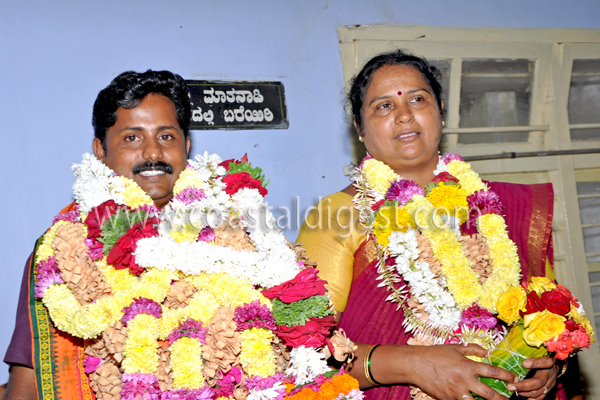
Mangalore, October 9: Harish K of Moodushedde was elected as the President of Mangalore Taluk Panchayat while Rajeevi Kempamannu of Kotekar was elected Vice President after drama that unfolded at the office for a while over the absence of BJP members for the meet.
The election was scheduled to start at 3 pm but none of the BJP members showed up initially. Members of the Congress insisted that elections be held without them. M V Venkatesh, Assistant Commissioner, who was the returning officer on the occasion, said that as per rules the meet can wait for 30 minutes and in spite of the said duration completing, the members don't turn up, the elections would have to be postponed to another date. A minimum of 50% attendance of members is a must, he said, quoting from the rule book.
Echoing the demands of the Congress members in attendance, U T Khader, MLA, who was also present on the occasion, pointed out to the returning officer that the rules he quoted are in context of a normal Taluk Panchayat meet and not pertaining to an election. Postponing of the election owing to absence of members would set a bad precedent, he said, and requested the officer to conduct the elections.
However, BJP members attended the meet at the last minute and the election was conducted. There were two nominations filed from the BJP, that of Harish K and Prakash Gaddikalpane. The latter withdrew his nomination during the time allotted for nomination withdrawal by the returning officer. Harish K was chosen President after he received 19 votes while Prakash Devaramane of Congress fell one vote short with 18 votes. Similarly, the Vice President post was won by Rajeevi Kempamannu of BJP with 19 votes while her Congress counterpart Shashiprabha Kotian got 18 votes.
The President's post was reserved for Backward Classes (A) category and Vice President's post was reserved for Women (General).
Speaking to mediapersons later, the newly elected President Mr. Harish said that there was no conflict within the party and that the second nomination was submitted only as a backup in case anything goes wrong. He also denied that there was a meeting convened by J Krishna Palemar, former Minister, with respect to nominations and maintained that he is for any decision taken by the party. Mr. Harish said that he hails from an RSS background and was a Bajrang Dal activist in Moodshedde. The 31 year old bachelor has been elected to the Moodshedde Gram Panchayat twice.
Ms. Kempamannu has been elected to the Taluk Panchayat for the first time. The 50 year old lady is an LIC agent and has completed her SSLC. More importance would be given towards providing basic facilities to people, she said.
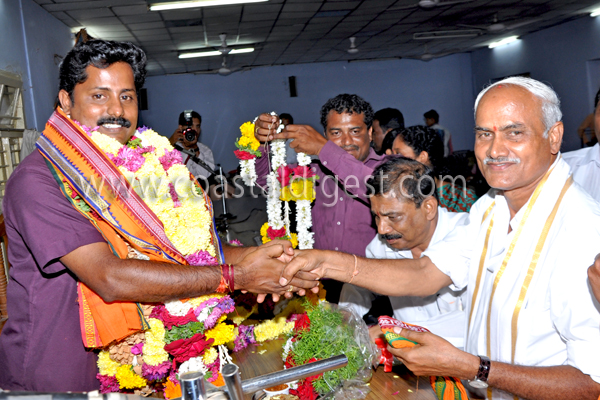

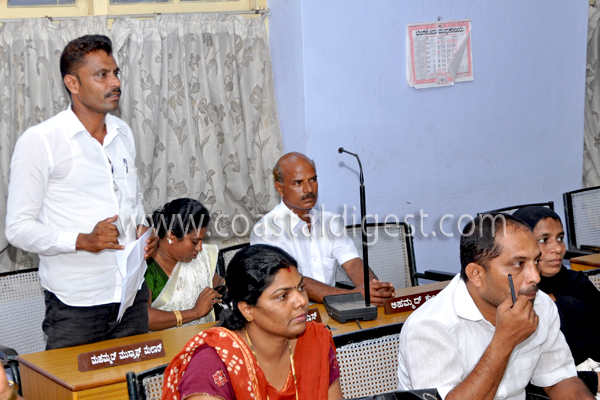
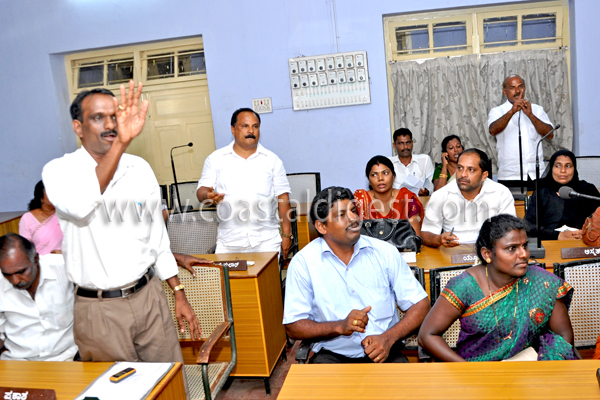
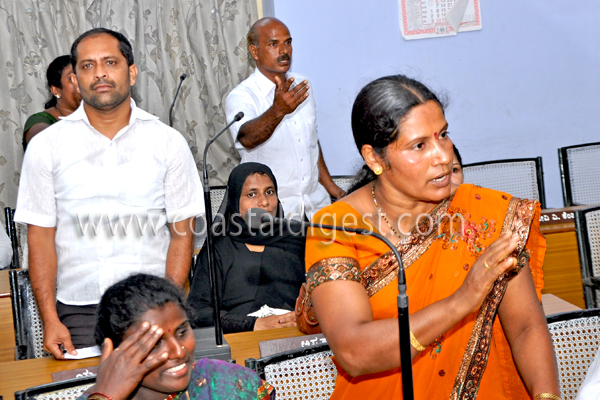
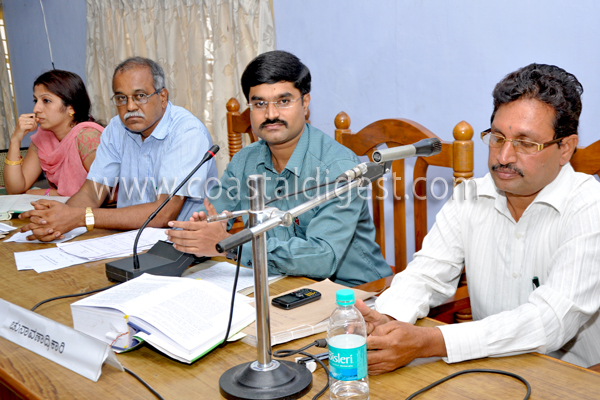
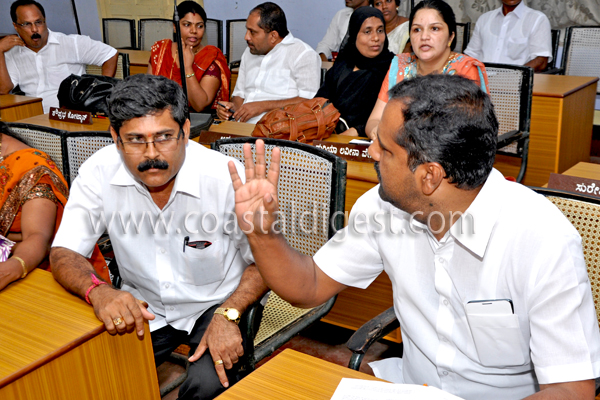
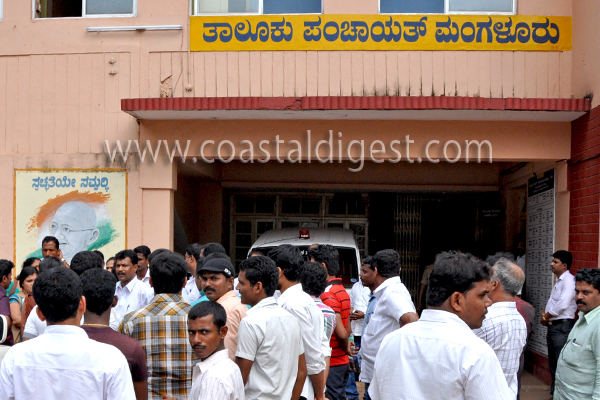
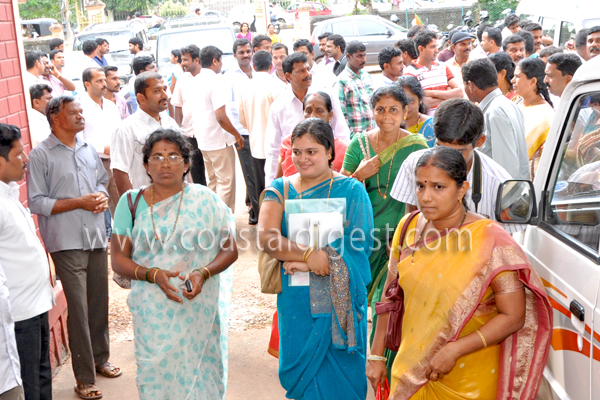
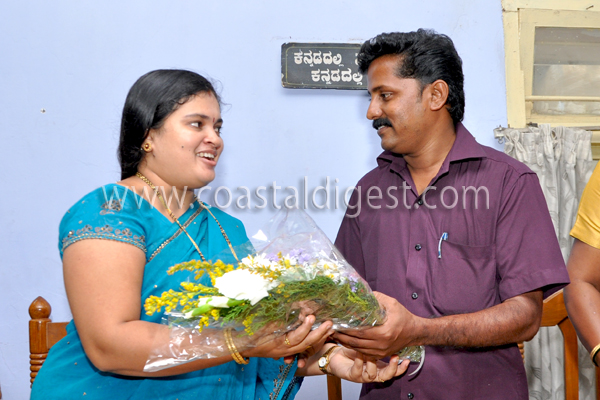
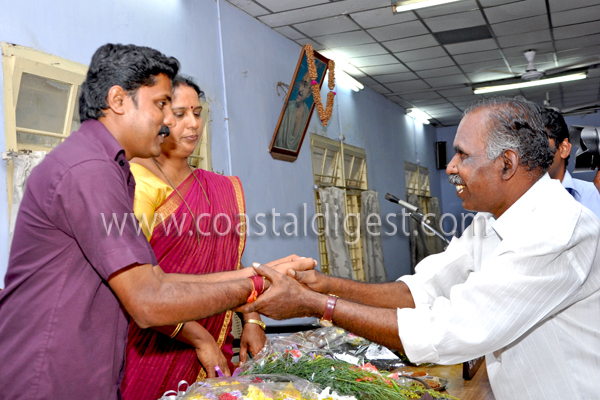





Comments
Add new comment